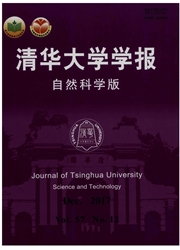

 中文摘要:
中文摘要:
小型仿人足球机器人在保持较低的构建成本条件下具有推进人工智能及机器人技术进步的潜力。该文在延续MOS系列先前设计的基础上,从结构、控制和软件方面改进并实现了新一代MOS-7小型平台。通过更改髋部关节自由度配置优化了下肢及躯干的空间布局;髋部驱动器连接方式的改进增强了机械结构的可靠性;依据任务实时性和运行快速性合理安排了决策控制系统的任务;图像采集系统实现了图像分辨率、可处理帧速率、可靠性及复杂度这4个维度的联合优化;通过引入粒子决策实现了智能算法的提升。MOS-7设计结果体现出有限资源合理配置、机电系统综合优化等小型仿人机器人设计特点。
 英文摘要:
英文摘要:
Small humanoid soccer robots can be used as inexpensive platforms to improve artificial intelligence and robotic systems. A new generation soccer robot, MOS 7, was developed with a modified structure, control system and software. The spatial arrangement of the lower limbs and trunk was optimized by changing the degree of freedom (DOF) configuration of its hip and improving the connections for the hip actuators to enhance the mechanical reliability. The decision-making and control tasks were arranged according to their real-time needs and running speed. The image capture system was optimized in 4 dimensions., resolution, accessible frame rate, reliablity and complexity. The artificial intelligence was improved by introducing novel particle decision making abilities. The MOS-7 system is then a small humanoid platform that uses limited resources in an integrated and optimized mechanical-electronic system.
 同期刊论文项目
同期刊论文项目
 同项目期刊论文
同项目期刊论文
 期刊信息
期刊信息
